How to make Altai’s traditional lamb meat soup ‘kocho’ (RECIPE)
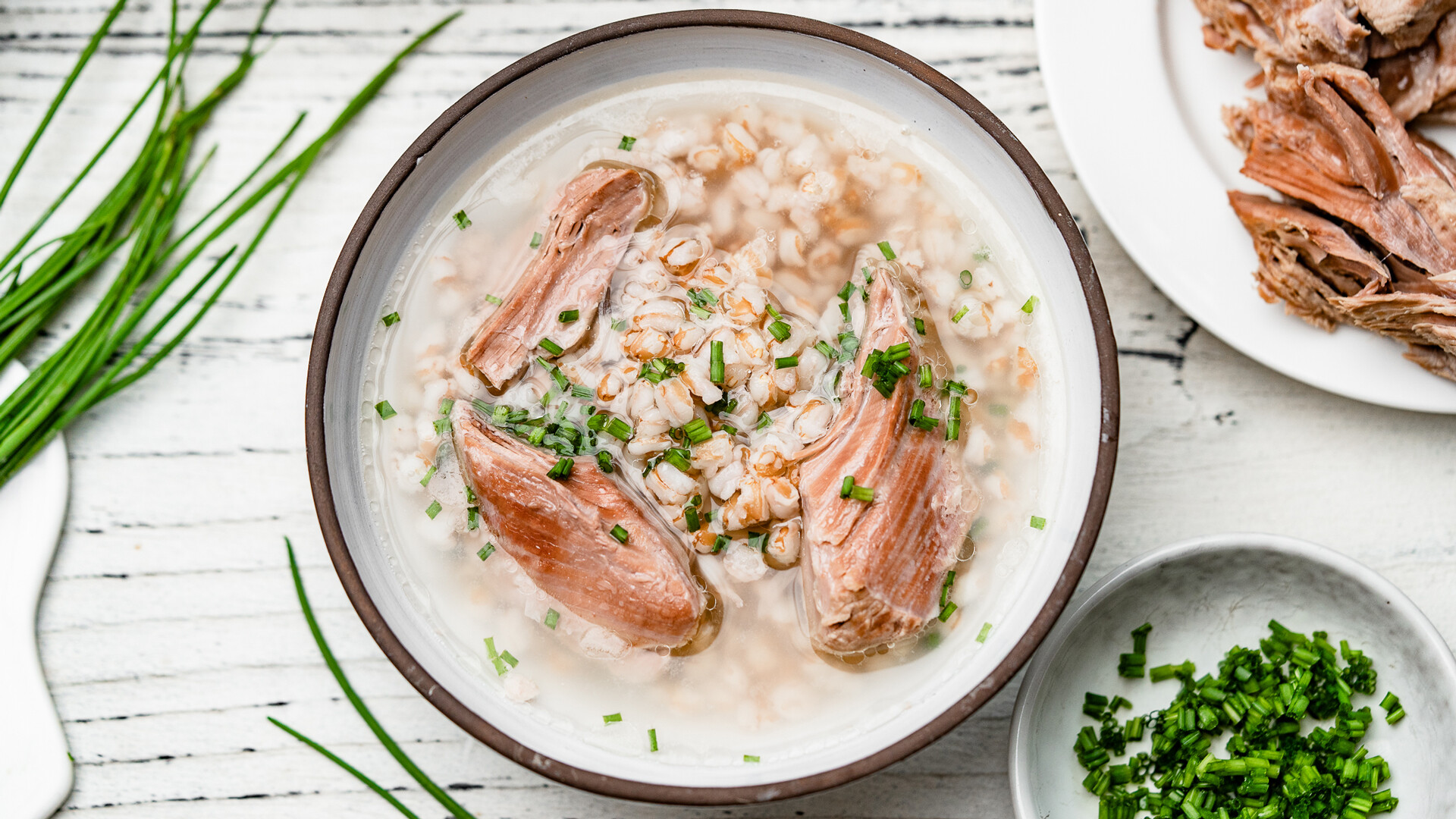
The Altai region is known for its wild forests, pristine lakes, and endless meadows. It’s a rare place on Earth where the beauty of nature is perfectly preserved in its original form. Since it’s a mountainous region, the climate there can be cold. So, the locals have come up with dishes to keep them warm.
Soup ‘kocho’ is a great local solution to keep both warm and well-fed in the best possible way, by combining the finest lamb meat and pearl barley but without large amounts of spices.
Soup kocho is an integral part of local life in the Altai region. During feasts and significant events, such as funerals and ceremonies to bid farewell to the dead, kocho soup is always served on the table for guests.
The peculiarity of this soup, as well as the entirety of Altai cuisine, is the moderate use of spices. Meat, pearl barley, salt and water — this is all you need to make this dish.
Of course, as with everything, subtle nuances are important. Lamb meat is best on the bone; for example, lamb ribs or shoulder are excellent choices. Such meat makes a rich broth that’s known in the local dialect as "muen", in which barley is used and boiled to make a thick chowder.
Nevertheless, a slight flavoring is added at the very end - when serving the dish on the table. Some wild onions are added. Or you can add dried onions in the winter months when fresh onions are not available. Wild steppe onions have a slight garlicky tang. My wild onion option was chives. Crushed garlic is added to kocho as well.
When serving, broth with barley is poured into bowls, while separated pieces of tender meat are laid out separately. The Altai yogurt or cream, called kaimak, and traditional flatbread, are served along with it.
The kocho soup turns out very flavorful even without any spices. Pearl barley gives a special flavor and milky tint to the broth. The lamb is soft and melts in the mouth. With the onset of cold weather, the best way to warm up is with a serving of hearty, thick, hot kocho.
Ingredients for 2-3 servings:
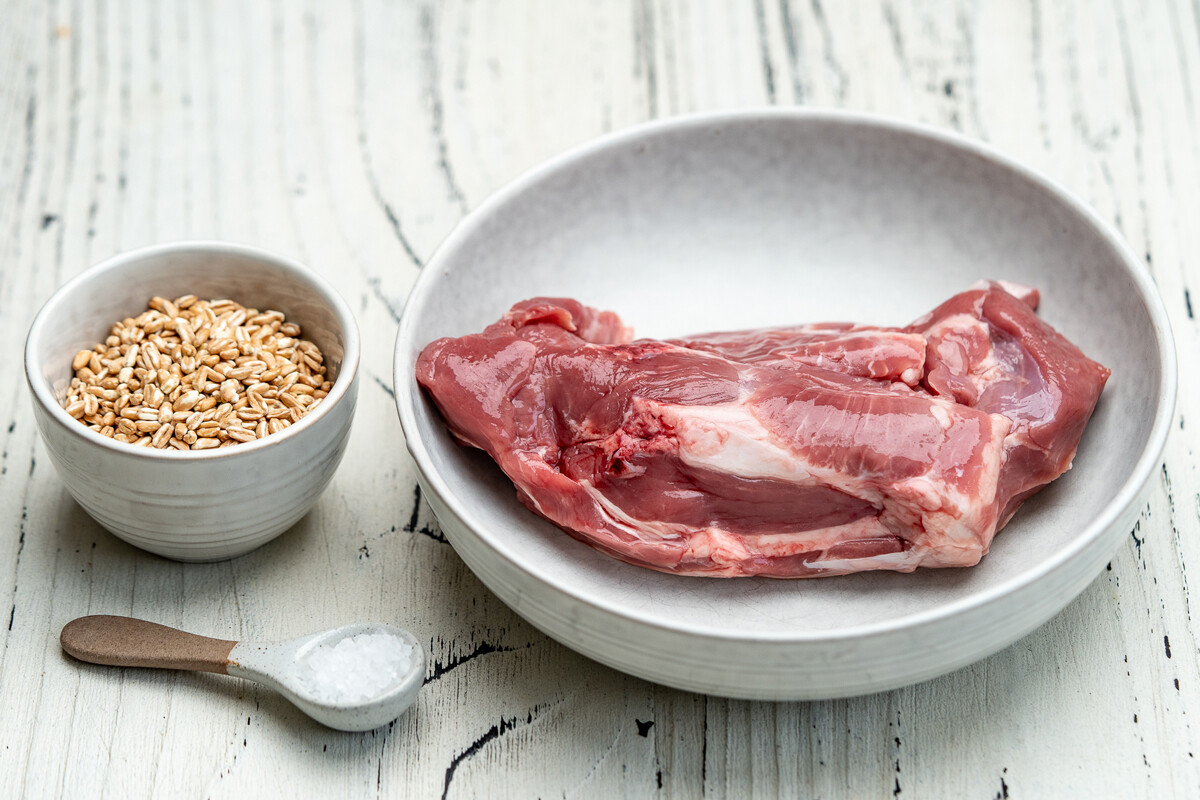
- Lamb on the bone - 400 g
- Pearl barley - 100 g
- Water - 2 liters
- Salt - to taste
- Scallions/ chives for serving
- Garlic clove - 1 pc (optional)
Preparation:
1. Wash the meat and pour cold water over it. Salt and let it boil.
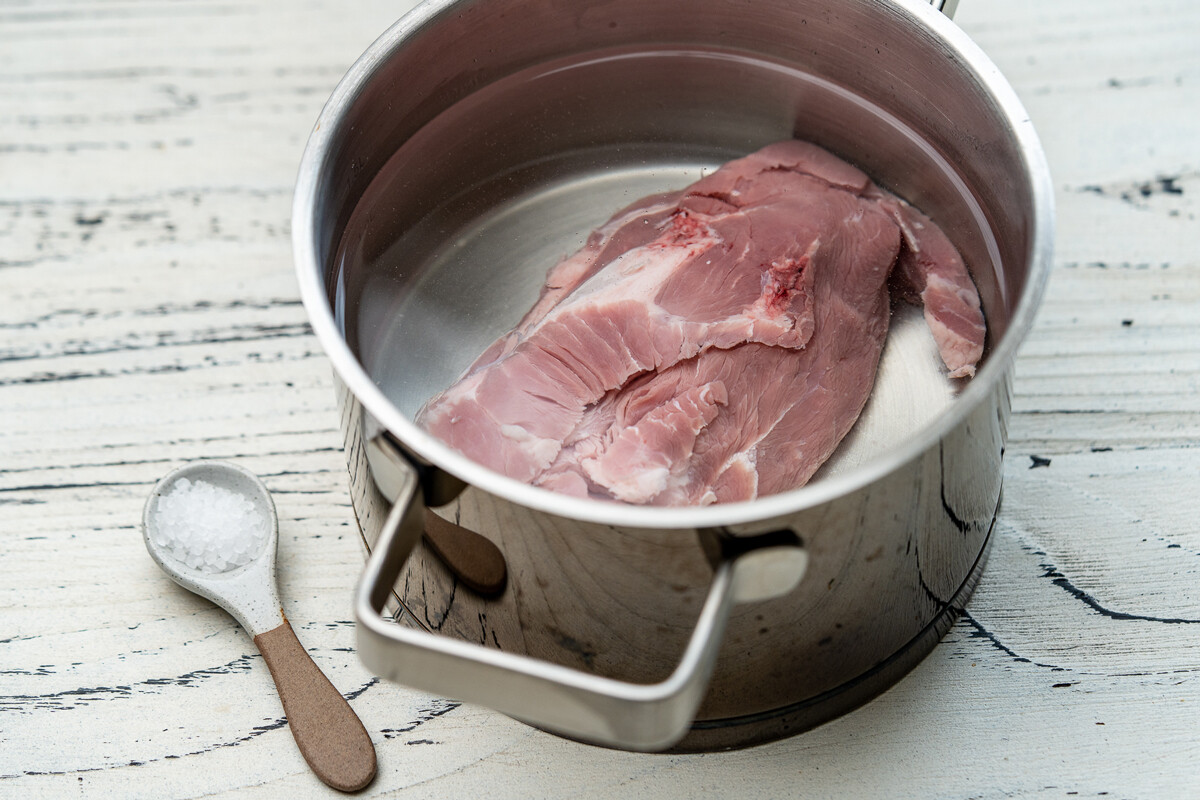
2. Frequently skim off the foam that arises from the meat. Cover the pot with a lid and cook over low heat for 2.5 hours, until the meat is soft.
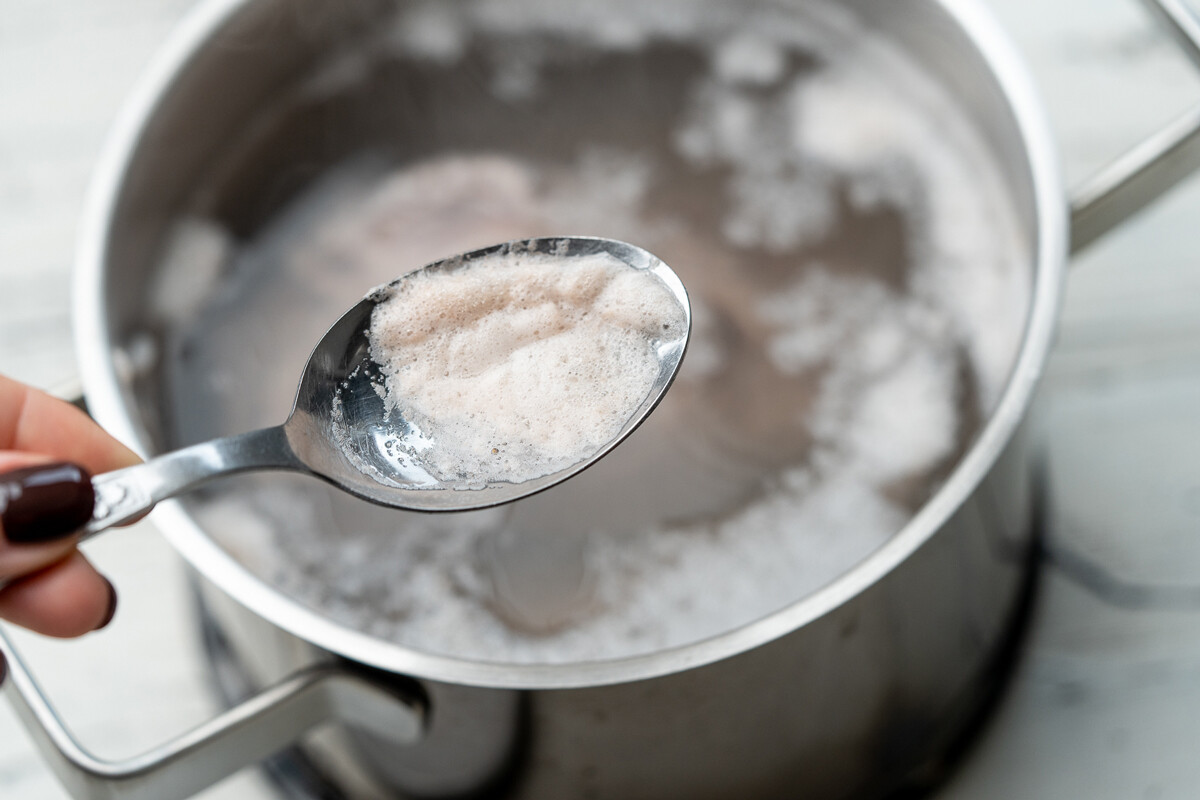
3. Rinse the barley. Mine was instant, so I didn't have to soak it in water beforehand. Refer to the cooking instructions on the package.
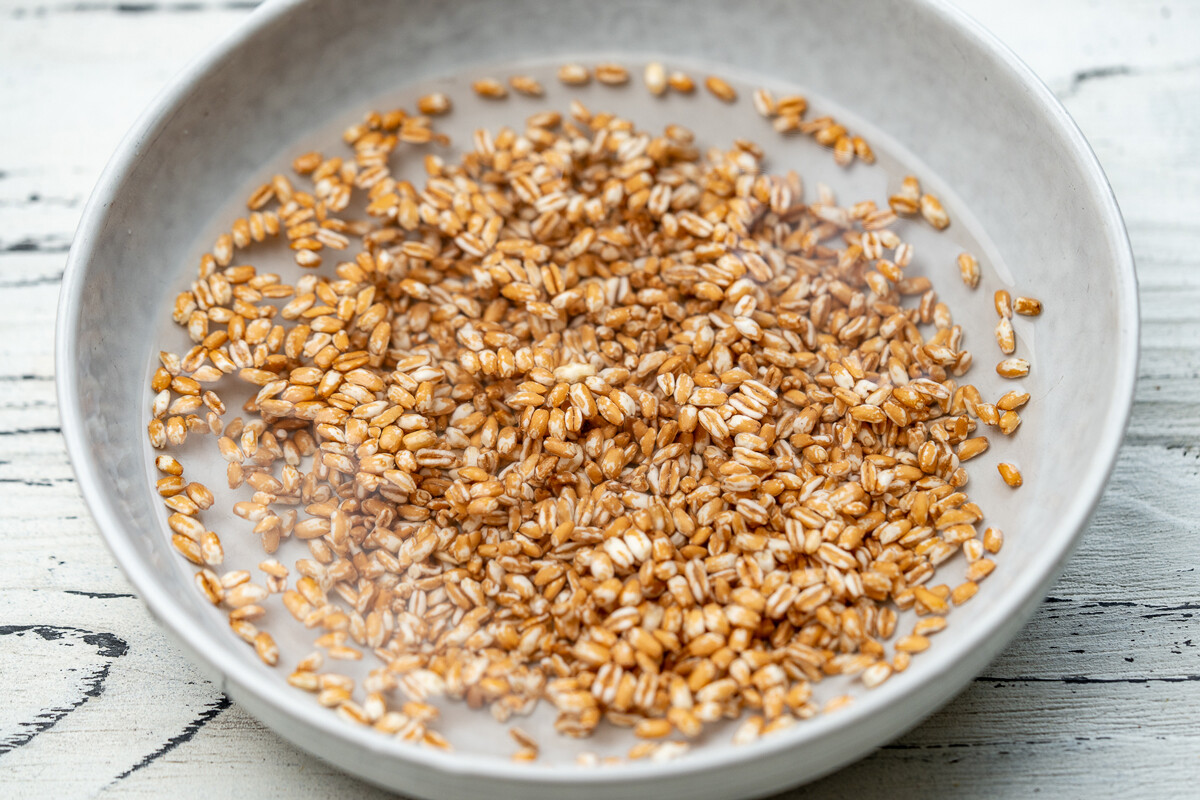
4. After 2.5 hours, add the pearl barley to the broth and meat.
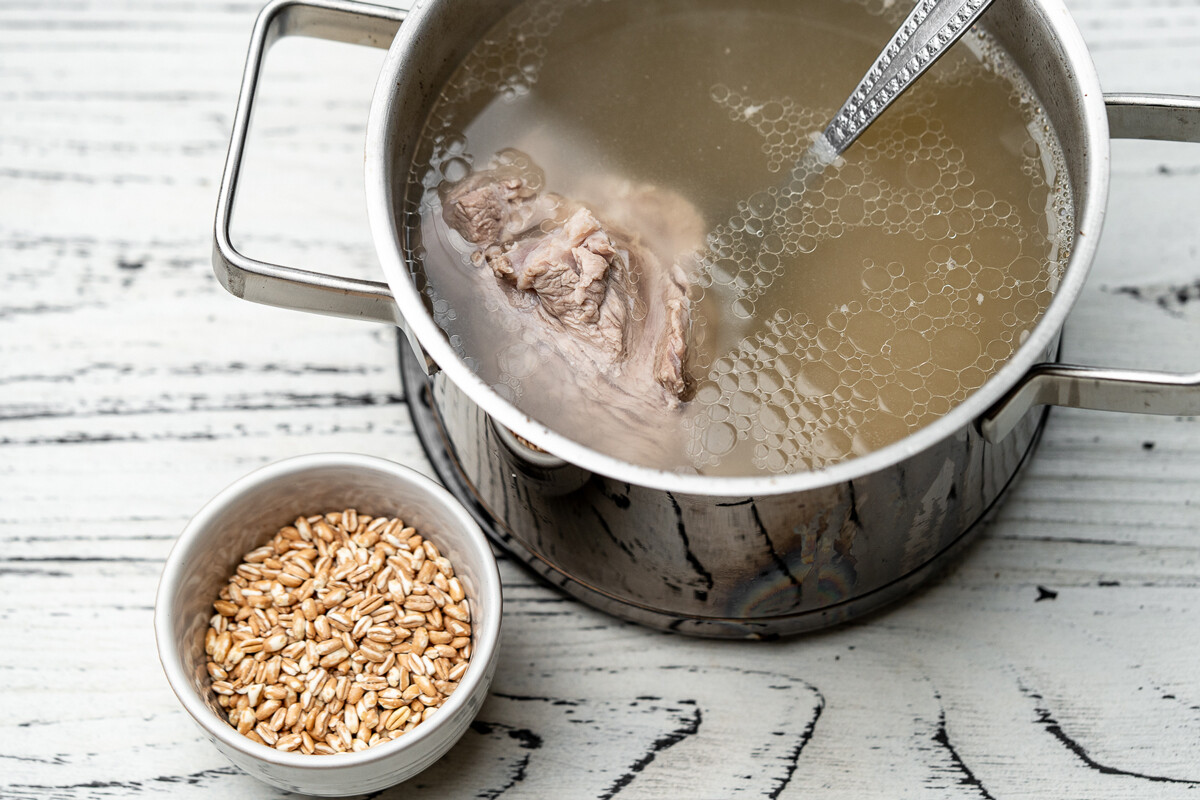
Cook the pearl barley a little longer than the time indicated on the package. It should soften and make the broth thick.
5. I added garlic at the end.
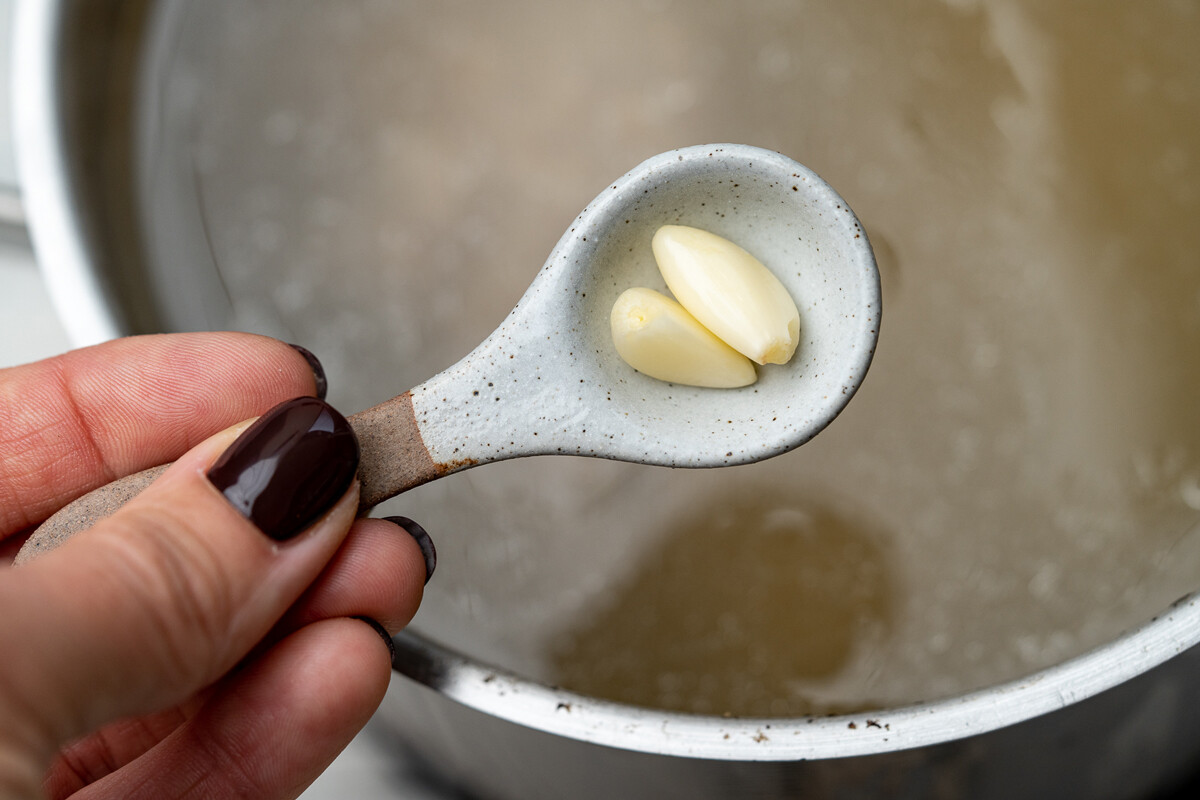
6. Break the meat into pieces and serve separately.
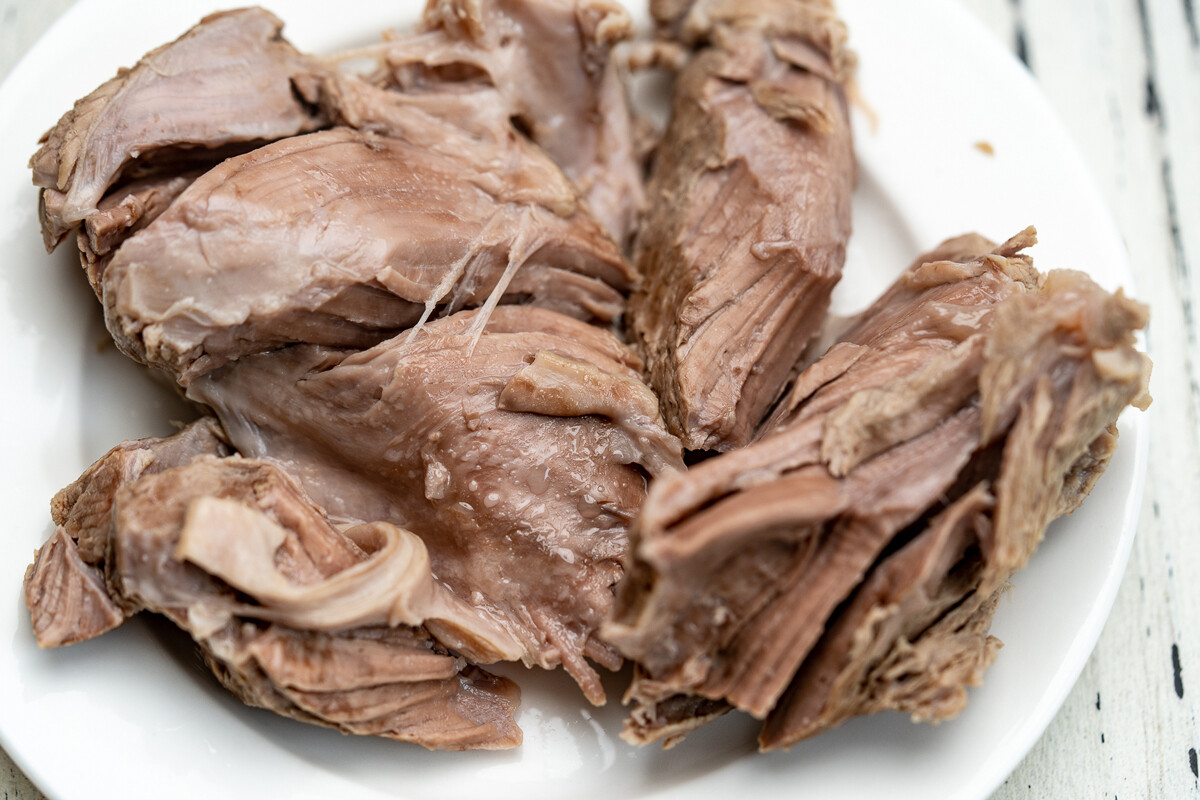
7. Pour the soup into bowls.
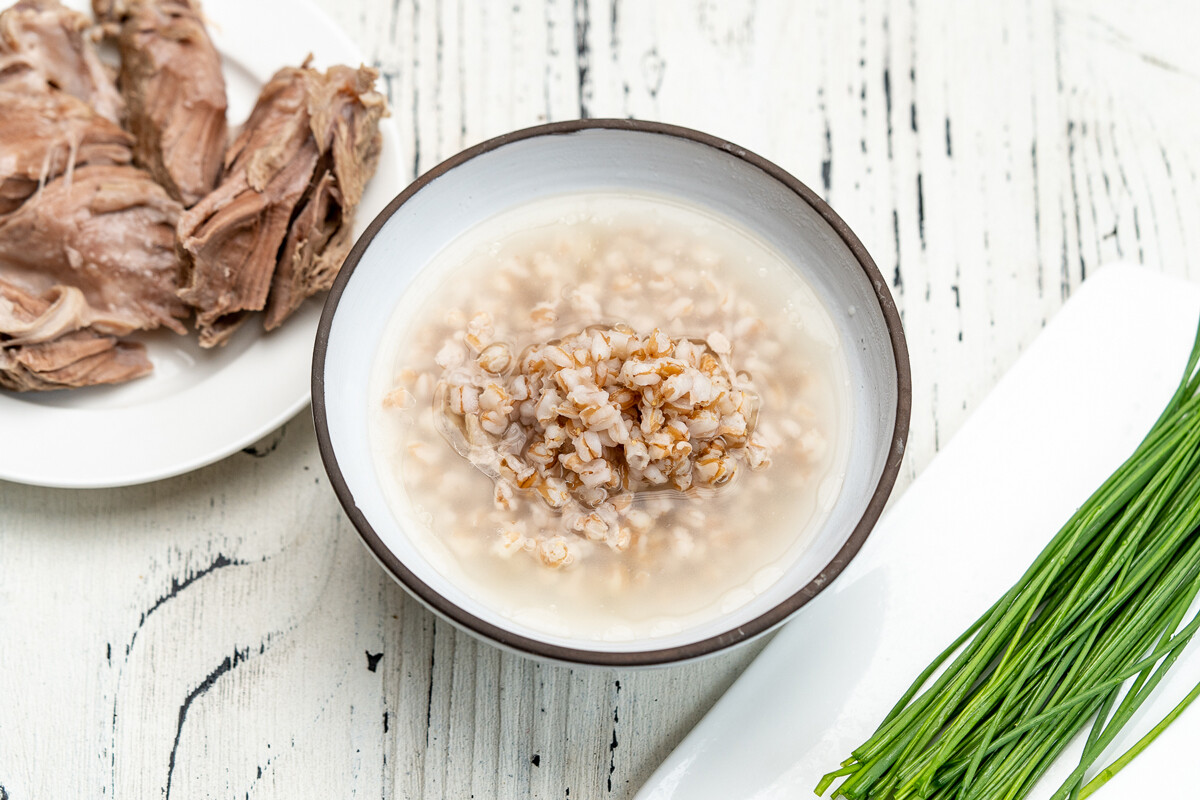
8. Kocho soup is ready. Enjoy!
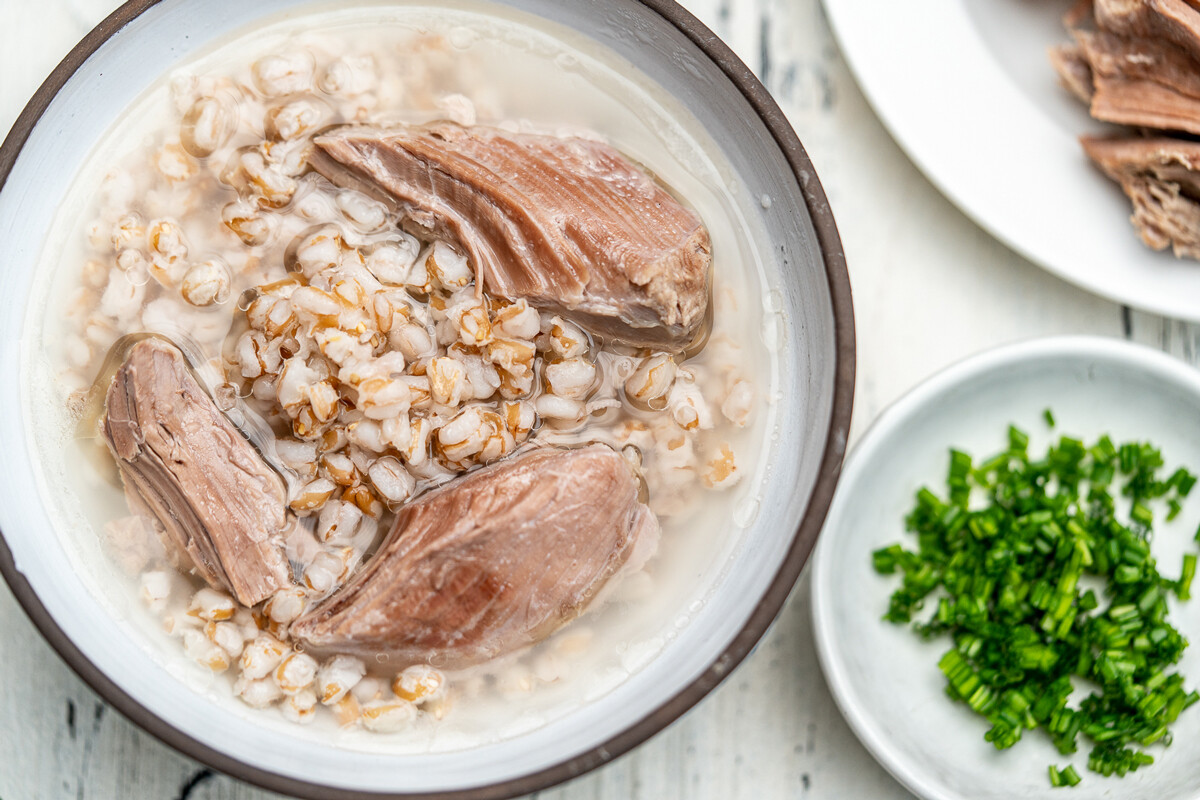
READ MORE: 10 rare gastronomical treats you can only find in Russia

